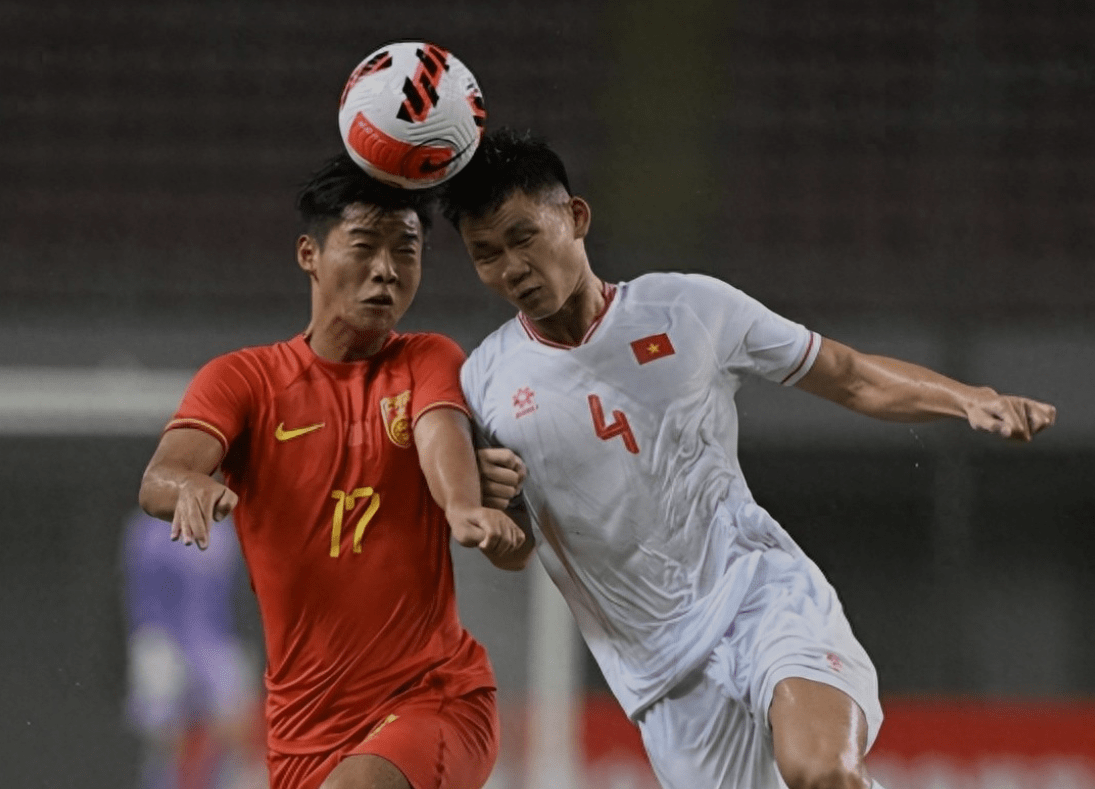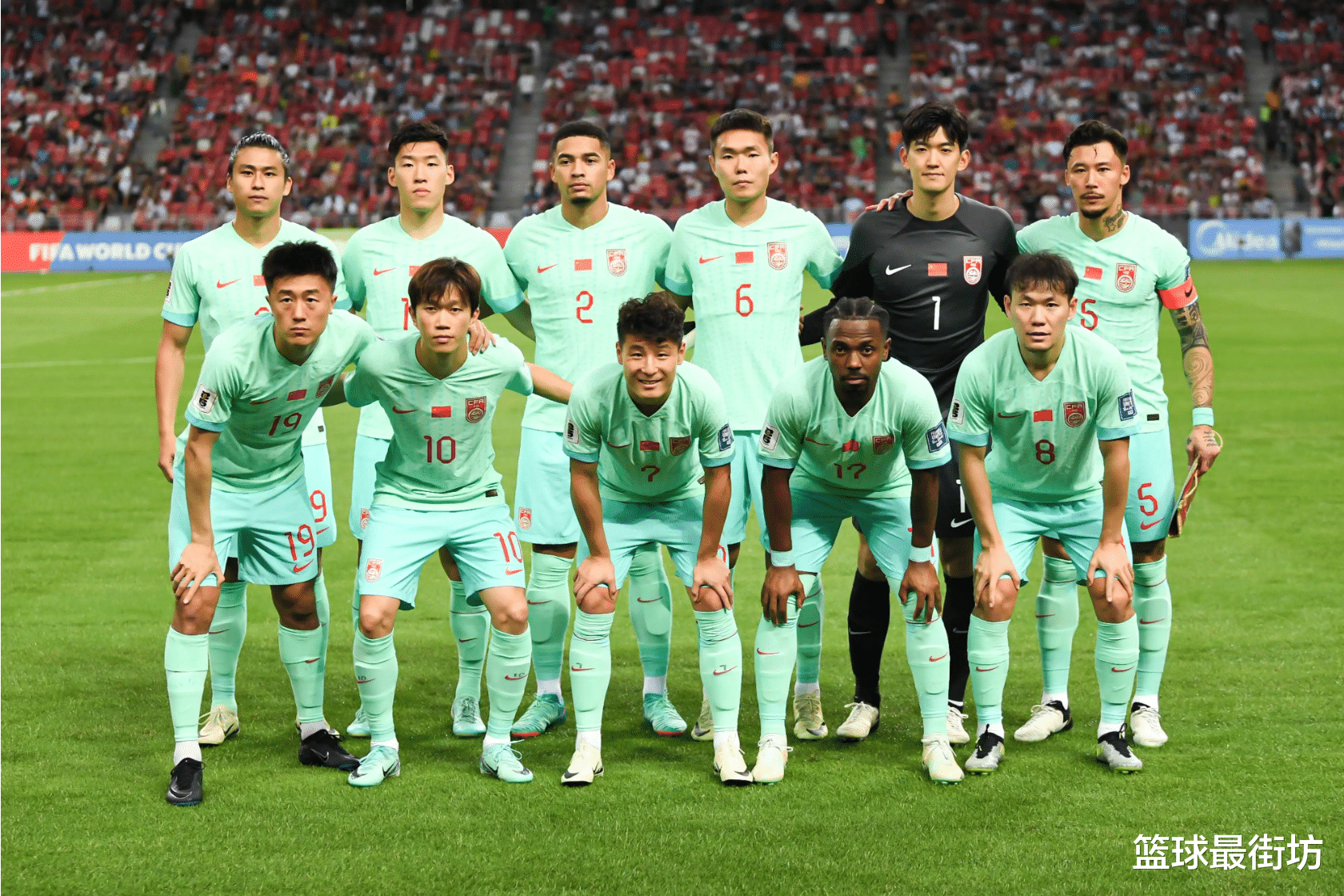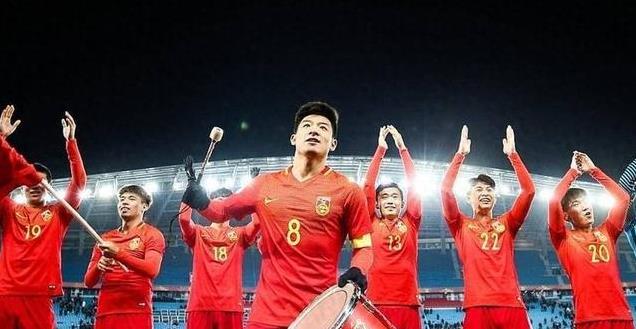The national football team's policy of naturalizing players has been likened to "heaven or hell." Fernandinho is absent from the new training session due to "personal reasons" and "contract disputes," while another naturalized player, Hou Yongyong, has made his first appearance in the national team with confidence, ready for the upcoming matches. This stark contrast is like two sides of a coin, one revealing issues with the naturalization policy, while the other seems to open up new possibilities for the national team. On one side, there is endless glory, and on the other, unresolved problems. It's hard not to ask: Do naturalized players really help the national team, or do they hold it back? First, let's talk about Fernandinho. It must be admitted that when he was naturalized, great hopes were pinned on him. He is not lacking in talent and has abundant physical fitness, making him a sharp weapon in the offensive end. However, since completing his naturalization and joining the national team, his performance has been lackluster. It is reported that this time he could not participate in the new training session not simply because of physical reasons but due to contract disputes with domestic clubs. He is still on vacation in Brazil, unable to return for the time being. At first glance, this seems like a personal choice, but looking at it from another angle, isn't this also a legacy of the management problems of naturalized players? The naturalization policy is ostensibly intended to make up for the shortcomings in the strength of domestic players, but after…
CCTV5 Live Broadcast: Saudi Team Slips to 8th in Asia, Chinese Team Seizes Opportunity, Hou Yongyong's Debut
With the gentle caress of spring breeze, at 11 pm on March 20th, a highly anticipated football feast is set to take place on CCTV5 Sports Channel. The Chinese men's football team will face off against their strong opponents in the World Cup qualifiers - the Saudi Arabian men's football team - during this prime time slot. The Saudi Arabian team, once a traditional powerhouse in Asian football, known for its exquisite skills and tenacious fighting spirit, has stood out in the Asian football scene. However, this year's Saudi team seems to have met with a Waterloo. In recent warm-up matches, they almost lost to Yemen, ranked thirteenth in Asia, a result that undoubtedly shocked many fans. Consequently, the Saudi team's strength has been questioned, slipping to eighth in Asia. This presents a golden opportunity for the Chinese men's football team, who are aiming to make it to the World Cup! Meanwhile, the Chinese men's football team has also made significant progress this year. Under the meticulous guidance of the coaching staff, the team has shown noticeable improvements in both technical and tactical aspects, as well as physical fitness. They have successively defeated Indonesia and Bahrain, with a chance to break into the top four, or even the top two. Especially the addition of naturalized player Hou Yongyong has injected new vitality and combat power into the Chinese team. With his outstanding skills, keen sense, and strong desire to win, Hou Yongyong has become a formidable weapon in the team's offensive lineup. His debut will be one of the highlights…
China's National Team to Face Saudi Arabia in Key World Cup Qualifier, Wu Lei Set to Return, $150 Million Naturalization Plan Fails
With the gentle spring breeze of March sweeping across the land, the eyes of football fans across the nation are fixed on a pivotal match in the World Cup qualifiers—China's national team is set to face the formidable Saudi Arabian squad. This highly anticipated game not only concerns the honor of both nations' football but also carries the hopes and dreams of countless Chinese fans for the World Cup. CCTV5 Sports Channel will provide live coverage of this crucial encounter, allowing viewers nationwide to witness every thrilling moment of this football feast! For China's national team, the significance of this match is self-evident. As an integral part of the World Cup qualifiers, each victory is crucial for the team's advancement to the next stage. Facing the strong Saudi Arabian side, the Chinese players know that only by giving their all can they secure victory in this tough battle. In this match, the player drawing significant attention is undoubtedly Wu Lei, one of the leading figures in Chinese football. His experience with the Spanish club has made him more mature and stable. Despite recent injury setbacks, reliable sources indicate that Wu Lei's return is imminent. His comeback is sure to bolster China's frontline with formidable attacking power, providing a strong support for the team's quest for victory. However, just before the match, there came disappointing news. The naturalized player Fernando, who was highly anticipated, has been confirmed to be unavailable for this game. It is reported that Fernando has returned to Brazil due to personal reasons and will not represent China…
No Return to the Premier League! Ronaldo's Future Changes! Authoritative Media Confirms, Abandoning Dreams, Continuing to Earn a 200 Million Euro Annual Salary
After the end of this season, Cristiano Ronaldo's contract with Al Nassr will also expire, so fans are quite concerned about his future direction. Now it seems that Ronaldo is indeed very likely to continue playing in the Saudi league. Media 365Scores mexico also discussed Ronaldo's future direction in its current report. The media 365Scores mexico stated: "This time, Ronaldo has talked to the club about the issue of renewal. This renewal will give Ronaldo a huge privilege, which is that he can not only become a player but also receive a huge welfare treatment off the field." In fact, before this contract expires, there were rumors outside that he was very likely to return to Europe to play football. But now it seems that he doesn't really want to return to the Premier League or top leagues to play football. Because playing there, he will not be able to get an absolute core position, and in some strong teams, he will even play as a substitute directly. However, staying at Al Nassr, he can continue to get unlimited shooting rights, and the competitiveness of the Saudi league is much lower than other leagues, so playing here can better complete his career goal of 1000 goals. However, this also means that Ronaldo has given up on his dream and will not return to the top leagues to maintain his form for the 2026 World Cup. Ronaldo is likely to have accepted that he will not be able to lead the team to win the championship at the 2026 World Cup.…
The first game of 2025 saw Ronaldo score again and continue to lead his team to victory. After the win, Al Nassr moved up to third place, having played one more game than others, but they still trail league leaders Al Ittihad by 8 points, making it difficult to compete for the title. After the victory, Ronaldo was in good spirits and quickly made a decision. According to an official source from Al Nassr, Ronaldo is set to complete his contract renewal with the club, which is expected to be officially announced in the coming days, although the length of the new contract has not been disclosed. Ronaldo's current contract with the club is due to end in the summer of 2025. If he does not renew his contract during the winter transfer window, he will be able to negotiate a new contract with other clubs as a free agent. For Al Nassr, this would undoubtedly be a significant loss. Ronaldo has previously stated that even though it may be challenging to compete for the league title this season, he still hopes to make a strong push for the AFC Champions League title. However, with Talisca confirmed to be leaving the team, how the team strengthens itself will affect Ronaldo's signing progress. Recent reports suggest that Al Nassr is in talks with Manchester United to bring in Casemiro and is willing to offer him a weekly salary contract worth up to 650,000 pounds. It is reported that Ronaldo is currently persuading his former Real Madrid teammate to join Al Nassr…
A 1-0 Victory Shatters the National Football Team's World Cup Dreams: The 18-Team Tournament is No Longer Chaotic, but They May Be Calculated by the Referee Again
The current situation is incredibly complex. In Group C of the top 18 qualifiers, the competition has become as chaotic as a hot pot base, leaving spectators dizzy. Especially the teams originally considered favorites, such as Saudi Arabia and Australia, have been stumbling, causing people to exclaim, "This is just too unreliable!" Saudi Arabia, in particular, was thought by many to be a sure bet for qualification, but a series of mistakes have left them floundering like a lost kitten, making observers shake their heads in disbelief. As for Australia, they were once comfortably positioned in the top four, but their fluctuating form has made the situation increasingly complicated. In contrast, our national football team, although the situation is not entirely clear, at least holds 6 points and ranks third, only one point behind second-placed Australia. This directly indicates that we have a chance to make a comeback! Honestly, seeing this situation, there's a slight excitement, even starting to fantasize that if everything goes smoothly, we might be able to squeeze into the top four and challenge for World Cup qualification. After all, with four rounds of matches remaining, especially the upcoming away match against Saudi Arabia, which could be a decisive turning point. Speaking of Saudi Arabia, we cannot underestimate the strength of this team. Although they are currently ranked fourth in the group and on the brink of qualification, the historical depth of Saudi Arabian football is undeniable. They have previously qualified alongside Japan, proving their capabilities. Their coach, Hervé Renard, is no ordinary figure, having achieved notable…
The title of the article is "The 2023 Nobel Prize in Literature: A New Chapter for Chinese Literature?
Translation: The 2026 World Cup Asian Qualifiers Round of 18 has completed six rounds, and the next stage of the competition will resume in March 2025, a critical period for determining the qualification situation. The Chinese men's football team will face Saudi Arabia away and Australia at home in March. To better prepare for these decisive battles, the Chinese national team will hold training from January 8 to January 18. Ivanković announced the latest list of players for the national team training camp, as follows: Compared to the previous national team roster, Ivanković has called up eight newcomers and dropped three veterans. In the goalkeeper position, Liu Dianzuo did not make it into this training roster, replaced by young player Jian Tao. On the defensive line, Jiang Guangtai and veteran Wu Lei were not selected. Players making their first appearance under Ivanković's leadership include Hou Yongyong, Huang Zhengyu, Mai Wulang, Yang Liyu, Han Pengfei, Wu Shaocong, and Wumiti Jiang. According to statistics, the average age of the players in this training camp is 26.7 years old, with a total of 11 players born after 2000, showing Ivanković's determination to push for rejuvenation in the national team, which is great news for Chinese football. From the training roster, Hou Yongyong's inclusion has attracted the most attention from fans. Hou Yongyong plays in the Norwegian First Division and scored a total of 19 goals with 8 assists last season, becoming the top scorer and winning the Best Player award in the league. Therefore, Hou Yongyong's selection can be said to be well-deserved.…
Exclusive Analysis of the National Football Team's Roster: Strengthening Offensive Power! The Most Thorough "Renewal" Yet
The national football team has made a significant move this time, bringing down the average age to just over 24 years old. They've replaced many familiar faces, making it seem like an entirely new team, even leaving me, an old fan, feeling a bit unrecognizable. Hou Yongyong has been doing well in the Norwegian league, scoring 19 goals and providing 8 assists in a season. This is no small feat in the Norwegian First Division, considering his team, Lanheng, is only mid-table in terms of overall strength. The addition of this naturalized player has given the national team's offensive line new options. His agile positioning and sharp shooting ability are quite rare among the current attacking group, especially valuable given Wu Lei's injury absence. Coach Ivan's decision to call up Hou Yongyong was well-considered. After all, the Norwegian First Division doesn't start until late March, giving him ample time to integrate with the team and see what changes the golden boot can bring to the national team. Wumiti Jiang's experience is truly heart-wrenching. He suffered a skull fracture during a game last year, which would shock anyone, but he recovered quickly and returned to the field soon after. Although Maewolang doesn't get much playing time, he always runs hard on the field, hustling behind the forwards. Although his skills aren't yet fully mature, his determination is impressive. The addition of these two post-00s players has significantly rejuvenated the national team's locker room. Although they lack experience, their vibrant energy is exactly what the team needs right now. Currently, the national…
Two goals in two minutes, the defeated team of the national football team reversed Oman 2-1 and bravely won the Gulf Cup championship
The Bahrain team, ranked 81st in the world, faced off against the Oman team, ranked 80th in the world, in the final match of the Gulf Cup. The two teams have similar world rankings, indicating that their strengths should be comparable. For the Bahrain team, Chinese fans will certainly not be unfamiliar, as they were defeated by the national football team in the World Cup qualifiers' top 18 matches. However, it was unexpected that the Bahrain team has now advanced to the Gulf Cup final, eliminating Kuwait in the semi-finals. Meanwhile, the Oman team eliminated Saudi Arabia, a tough opponent for the national football team in the World Cup qualifiers' top 18 matches, also in the semi-finals, demonstrating the Oman team's considerable strength. In the last two encounters between the two teams, Oman had the upper hand, having defeated Bahrain in both matches. Therefore, more than half of the fans were confident that Oman would defeat Bahrain before the game. This match was not only a championship battle for Bahrain but also a revenge match. In the 17th minute of the first half, Buseyidi delivered a precise pass, and Mushaifri scored the opening goal to give Oman the lead. In the 79th minute, Mahong scored from the penalty spot to level the score for Bahrain. Two minutes later, Musalami's own goal helped Bahrain take the lead. In the end, Bahrain made a comeback against Oman and bravely won the Gulf Cup championship.
Recently, commemorative coins and bills for the Year of the Snake have been very popular domestically. For collectors, they are a beloved item, while for scalpers, they represent an opportunity to make money. In the sports field, there have also been precedents of issuing commemorative coins for certain star athletes, and recently, such news has emerged regarding Cristiano Ronaldo (C罗). Portuguese media recently revealed that the central bank of Portugal is considering issuing a commemorative coin featuring Ronaldo, with a face value of 7.5 euros. However, in the early hours of today, the Portuguese central bank issued a statement clarifying that this news is false. They have no plans to issue any commemorative coins or bills related to Ronaldo. They also stated that the approval authority for the issuance plan lies with the national printing bureau's mint. Although this is false news, for many fans of Ronaldo, the president's status is already great enough, and there is no need to prove it by issuing currency. Currently, the president's focus is still on Saudi Arabia. In a recent interview with the official Saudi League, he revealed that his goal is to help Al-Nassr win the AFC Champions League title. In recent years, the Saudi league has made significant progress, with many international superstars joining. He hopes that in the next five to ten years, Saudi football can continue to develop. However, if Al-Nassr wants to win the championship, they must strengthen their lineup. During the winter transfer window, they also let go of Brazilian forward Talisca. However, for his new coach…









